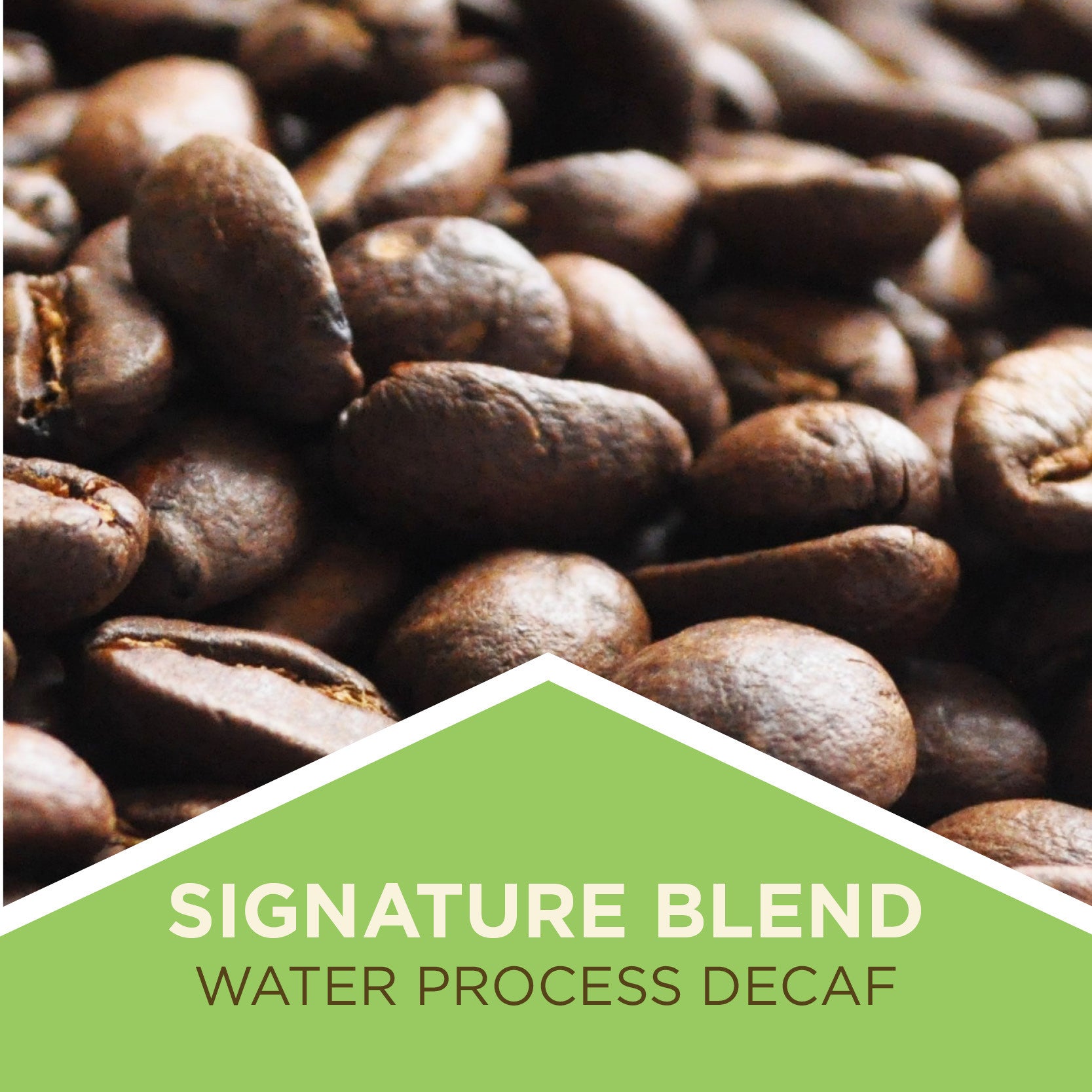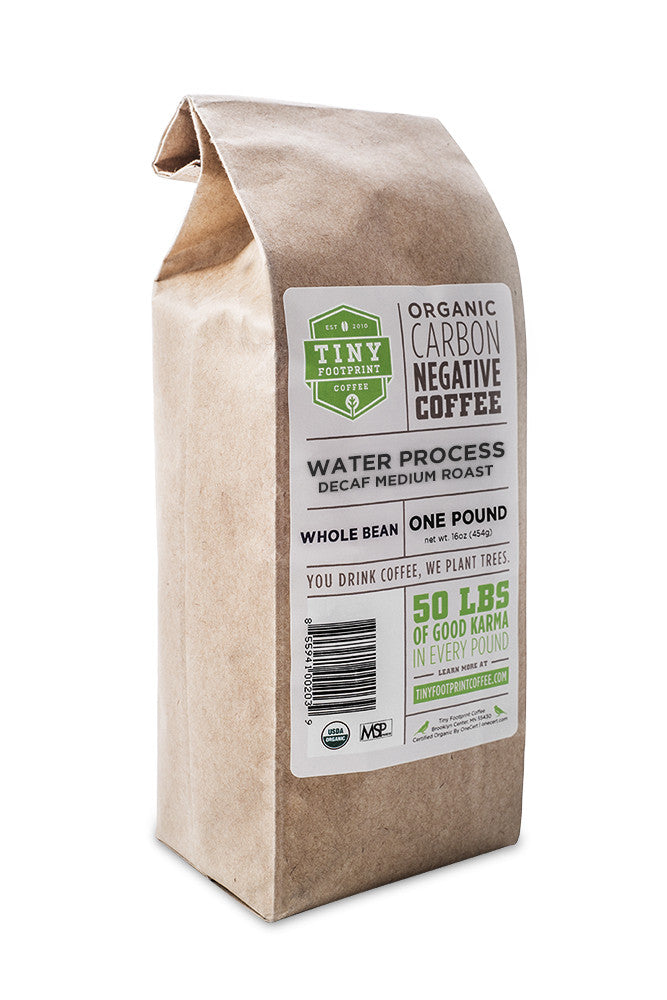Tiny Footprint Coffee
Water Process Decaf Coffee
Organic Fair Trade Water Process Decaf
- Roasts: Light or Dark Roast Options
- Certifications: Organic, Fair Trade
- Origin: depending on season- Peru, Mexico, Honduras, Sumatra, Colombia
- Fresh Roasted. Shipped Direct
- 99.9% Caffeine Free
Why Our Decaf Doesn’t Taste Like a Compromise
Let’s be real: the words “decaf” and “delicious” haven’t always belonged in the same sentence. Too many decafs taste flat, muted, or like someone forgot to add the coffee. Not here. At Tiny Footprint, we’re obsessive about flavor and sustainability, even when we’re kicking caffeine to the curb. That’s why we go all-in on 100% chemical-free water processing. No methylene chloride, no ethyl acetate, no solvents. Just pure water and coffee soluables gently coaxing the caffeine out while leaving the coffee flavor intact.
Mountain Water Process | Descamex
The green coffee is soaked in a pristine water and coffee-soluble solution that allows the caffeine to migrate out through osmosis, while keeping the flavor compounds inside. The water is filtered and recycled Result? 99.9% caffeine-free coffee that still tastes like coffee.
Swiss Water Process
The OG of chemical-free decaf: the Swiss Water® Process up in British Columbia. Same idea—only water, temperature, and time—but they use a proprietary Green Coffee Extract (GCE) that’s super-saturated with coffee flavor (minus the caffeine) to pull the caffeine out without stealing the taste. Both processes are basically twins separated at birth: zero chemicals, certified organic-compatible that leave the flavor intact.
The Science of the Swiss Water® Process (Video Link)
Why Water-Processed Decaf actually tastes better vs. other methods
- Richer body and brighter notes - think dark chocolate + ripe apricot instead of “cardboard water”.
- No chemical aftertaste equals cleaner finish
- Origin character shines through—coffee from our women-led co-ops in Central America still taste like their caffeinated siblings.
It's Healthier
- 99.9% caffeine-free but still packed with antioxidants and polyphenols
- Zero chemical residue → easier on sensitive stomachs, pregnant folks, or anyone who loves coffee but not the 3 p.m. heart palpitations
- Still organic and fair-trade certified from farm to cup.
The Places and People
Here’s the part that makes us grin every time we roast a batch:
Every single pound of Tiny Footprint coffee—decaf included—is carbon-negative. We partner and finance reforesting projects with coffee farmers, Community Water Boards, and other landowners in Honduras, so every pound you buy results in forest regeneration and water source protection. The end result is more carbon sequestered than our entire supply chain (farming, shipping, roasting, everything) emits.
Plus, these coffees come from Organic and Fair Trade cooperatives meaning good wages, organic practices, and community projects (mainly education and health) that keeps soil healthy and families thriving. No chemicals in the decaf process means cleaner environments in Veracruz and British Columbia, too.
You’re not just drinking decaf. You’re the ultimate enabler of a good climate-karma supply chain—from the people harvesting at origin, to the water gently removing caffeine, to the trees we plant with your purchase, all the way to perfect caffeine-free coffee in your cup.
(And yes, Subscribe & Save works on decaf too—because good karma should be automatic.)






